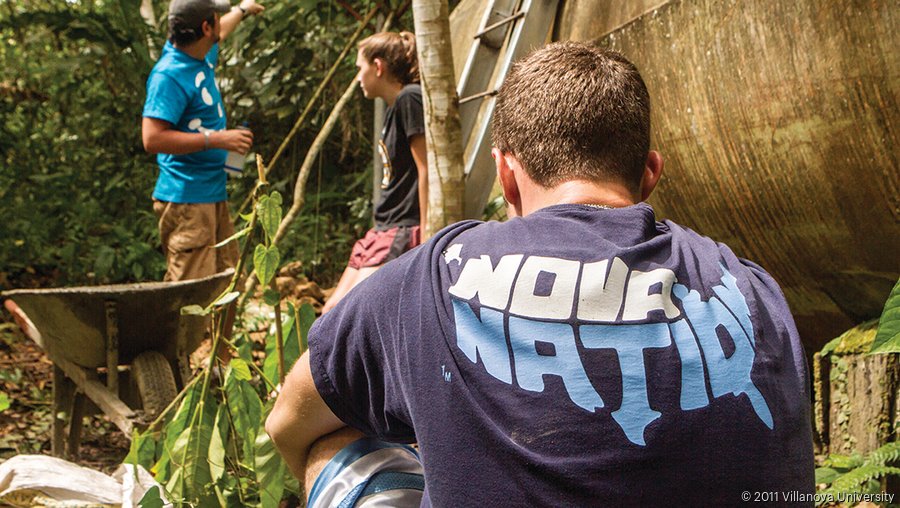Aqua America’s water treatment gurus are expanding their expertise beyond the U.S. borders, as the Bryn Mawr-based water utility company embarks on a new partnership with Villanova University.
The collaboration links up Aqua’s experts with students as they join in the College of Engineering’s long-running efforts to improve access to and the quality of water in developing countries.
“It’s a great opportunity for our engineers, our chemists and our folks that work in the lab to mentor younger folks who may enter the water industry and get engaged in the next generation of water professionals," said Kimberly Joyce, Aqua’s director of public and legislative affairs. Those connections could also prove valuable when Aqua — which operates subsidiaries in nine states in the eastern, midwestern and south central U.S. regions — goes out to recruit new hires.
"[Villanova is] graduating highly professional engineers and when we're looking to fill those positions ... [it] would be a great place to find them as they graduate," she said.
Aqua experts first met the students this spring semester, doling out advice for their projects on anything from water pressure limits to solar-powered pumps, technological challenges and more. The interaction sparked a desire to see the students’ work in action, said Joyce.
The engineering service learning program has partnered with 10 different organizations in seven different countries over the past two decades, but their attention is now focused on water access and water treatment programs in Nicaragua and Panama.
Joyce was one of three Aqua employees who traveled to Nicaragua earlier this month, tasked with capturing a natural water source high in the mountains and creating a distribution and storage system to provide water to about 70 families in the small Kasquita community. The Panama project is alternatively focused on water storage solutions, but both allowed shared growth between the student and employees, said Jordan Ermilio, the director of the engineering service project at Villanova.
“We get to build the expertise of our students a lot more significantly with legitimate experts that are working in this sector and industry about what works and what doesn’t work,” he said.
The students provide engineering blueprints for partner NGOs so they can take projects into their own hands and ensure their infrastructure improvements are sustainable, a factor that sets the Villanova program apart, Emilio said.
They’ve set up locally run microbusinesses to supply parts for the household water-treatment devices — ceramic pots coated with antibacterial silver nitrate — and microfinance institutitons to help families afford them. The goal is to build on-the-ground expertise to keep the projects running beyond the teams’ annual visits.
“We have a local tech team as well that we’re working with directly. We’re mentoring, sharing information and building capacity,” said Ermilio.
While Villanova students have contributed funds in the hundreds of thousands to get their projects off the ground — not counting the in-kind contribution of university staff hours — Aqua’s partnership allows them to build on those established foundations and receive financial support to make sure the projects in progress come to fruition.
Joyce estimated Aqua’s contribution to both projects this year at about $45,000 combined, but that figure also doesn’t take into account the human resources dedicated to the project.
“It’s a small portion of our foundation, but because of how it impacts our employees and the opportunities it’s giving our employees and Villanova students," said Joyce, who added they hope to have shovels in the ground next March for the Nicaraguan project and complete it the following summer. "There’s a lot more impact than just the dollar amount."

